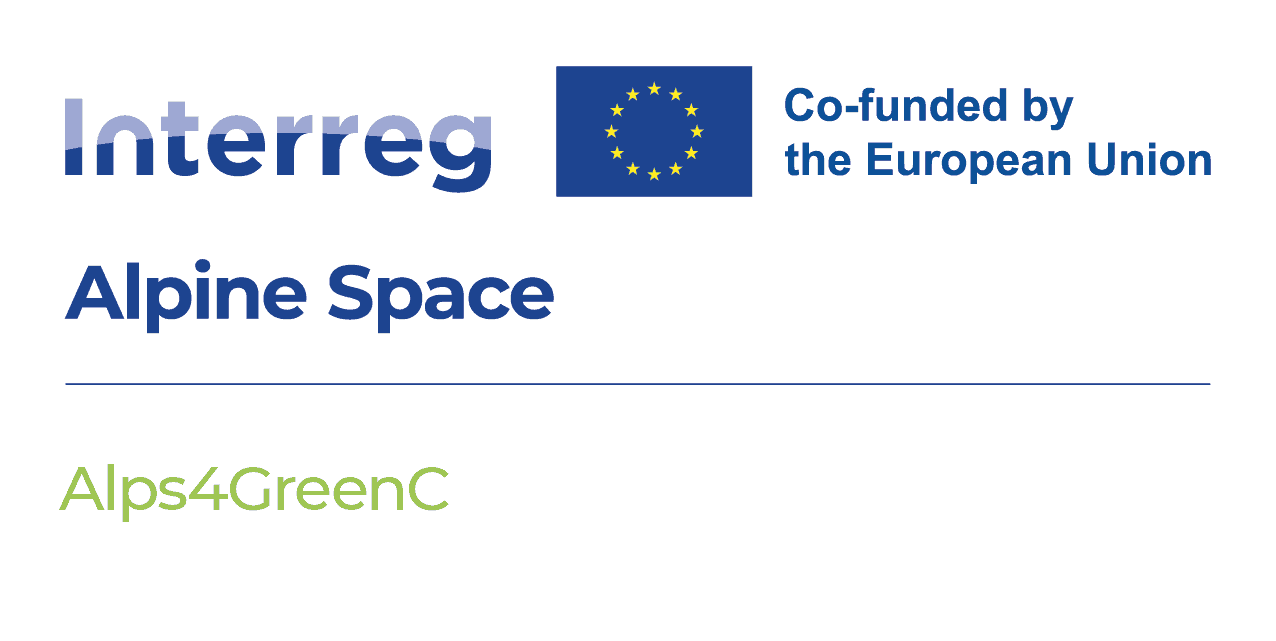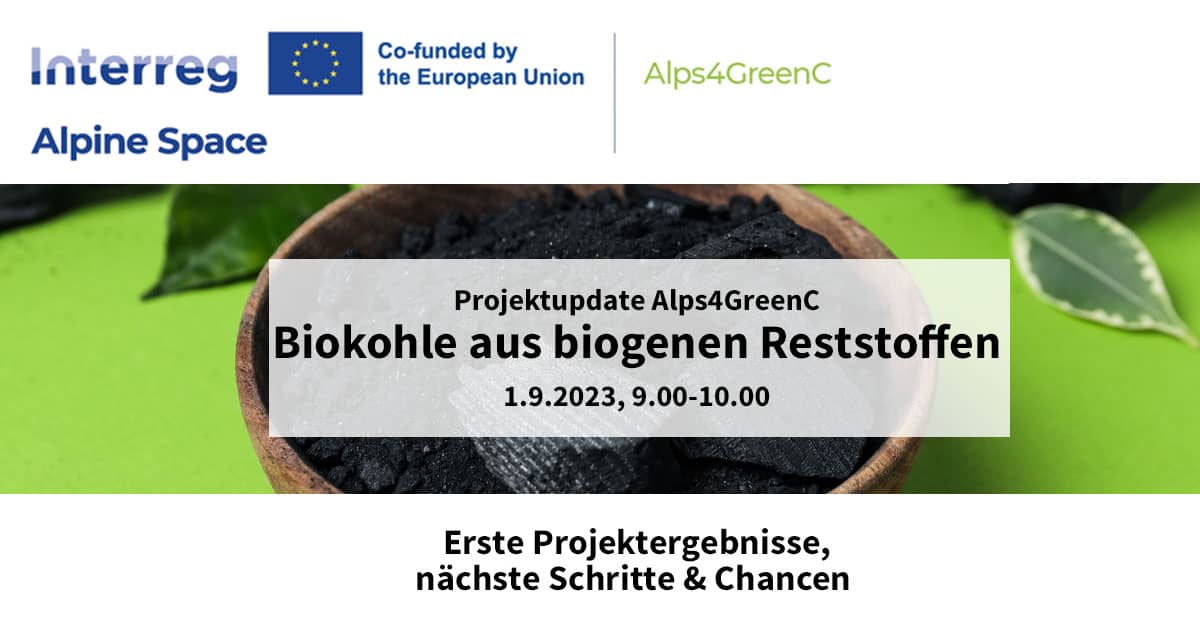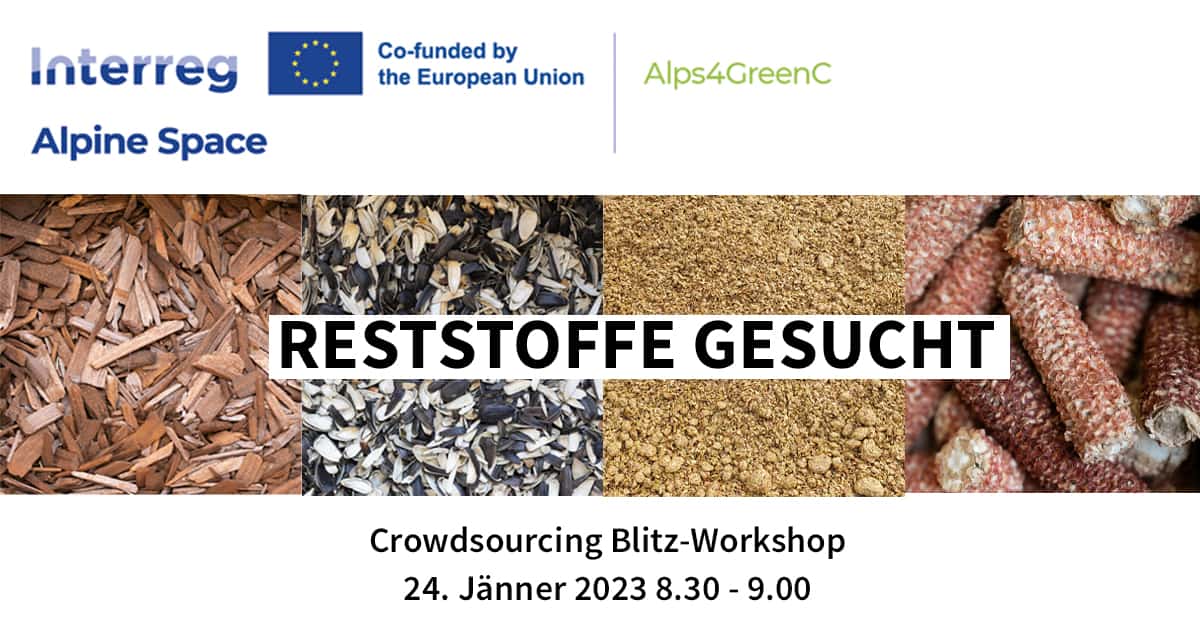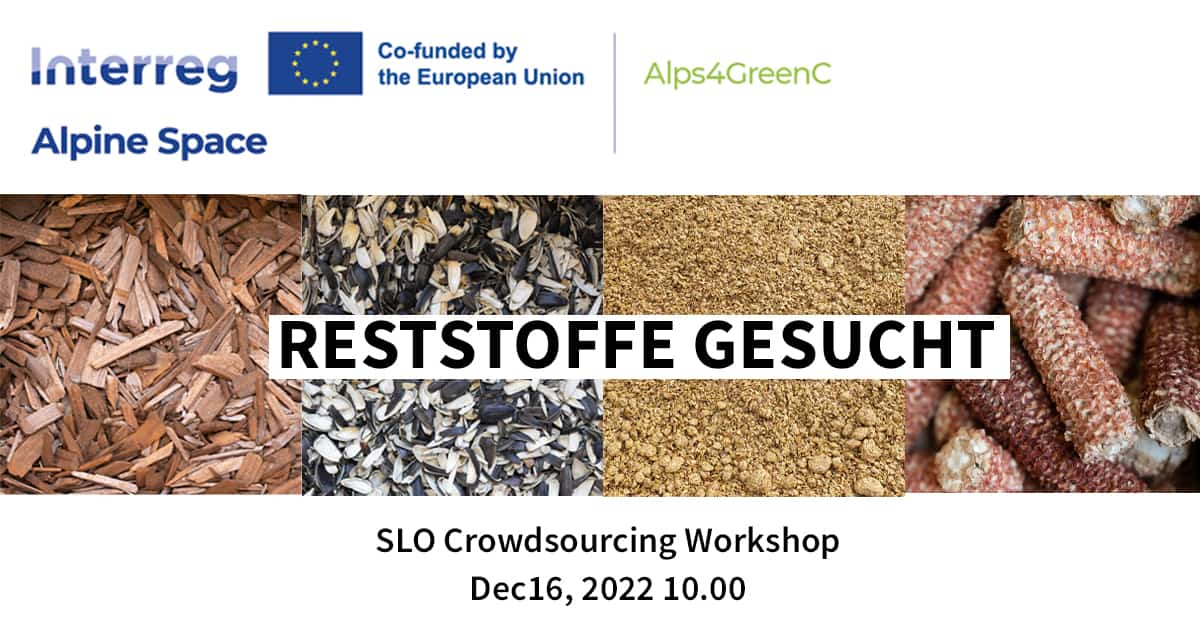
Overview
The energy dependency of the Alpine region further increases its vulnerability to climate change and the loss of biodiversity. Biochar and green carbon from biomass residues can make a significant contribution to reduce this dependency. The project Alps4GreenC contributes to the conditions for energy sufficiency and climate protection of the region by setting the scene for a transnational utilisation of biomass residues. Through policy recommendations and the pilot production of green carbon, the project investigates the opportunities for biomass conversion and proposes transnational biochar-based value chains. This first transnational collaboration for the establishment of biochar-production value chain will enable to identify and upgrade the appropriate technologies for biomass conversion and to fully realise the shift to green, post-carbon approaches .
Factsheet
- 2021 – 2027
- Carbon neutral and resource sensitive Alpine region
- SO 2.2 - Promoting the transition to a circular and resource efficient economy
-
- AG9 Energy efficiency and renewable energy
- 09/2022
- 02/2024
- 740.866 EUR
- 555.650 EUR
Description
The Alps4GreenC project is focused on setting-the-scene for transnational utilization of biomass residues through investigation of biomass conversion opportunities in project partner countries and proposal of transnational biochar-based value chains. As such, we are tackling the challenges of the Alpine area pertaining to adverse effects of energy dependency and high energy prices, biodiversity losses and high vulnerability to climate change, while offering solutions for the use of greatly available biomass in the region. By proposing the necessary supportive measures through policy recommendations and practical testing and pilot production of green carbon to evaluate the potential of its utilisation for steel and agriculture industry, we will contribute towards creating the conditions for energy sufficiency and climate-protection of the region showcasing the innovation and resource potentials already present, but currently disconnected. The advantages of this transnational collaboration will be primarily experienced by those directly involved in the value chain (residue producers, tech providers and end users, hence large enterprises and SMEs), however other stakeholders in the ecosystem, such as national/regional public authorities, sectoral agencies and higher education and research organisations, will also benefit from comprehensive framework creation. The framework we propose includes mapping of stakeholders & resources, implementation of crowdsourcing campaign to collect biomass residues and raise awareness, testing and piloting of biochar and context & gap analysis of biomass conversion opportunities for green carbon supply. Without a transnational approach to this issue, appropriate technologies for biomass conversion will not be identified and upgraded, therefore the shift to green, post-carbon approaches might not be fully realised. It is the first time, transnational collaboration for the establishment of biochar production value chain is foreseen.
Outcomes
-
Biochar pilots
Through the crowdsourcing campaign we will obtain residues that will be mapped and analysed to enable transnational pilot scale tests for green carbon production (library of 12 biochar samples). Its suitability for applications in steel industry and agriculture will be checked/tested, while enabling the transfer of know-how on operating conditions needed to find the best available technologies. The performances of produced green carbon will be presented in open platform repository. -
Alps4GreenC Policy recommendations
Taking into consideration the findings from the deliverables of all project activities, Alps4GreenC Policy recommendations will propose to create enabling environment for improving and increasing green carbon supply. By shifting the production to bio-based materials, the Alpine region will benefit in terms of energy&climate resilience. For that we need proper legislation, financial instruments, R&D support measures. Policy recommendations will be disseminated through national workshops.
Project calendar





